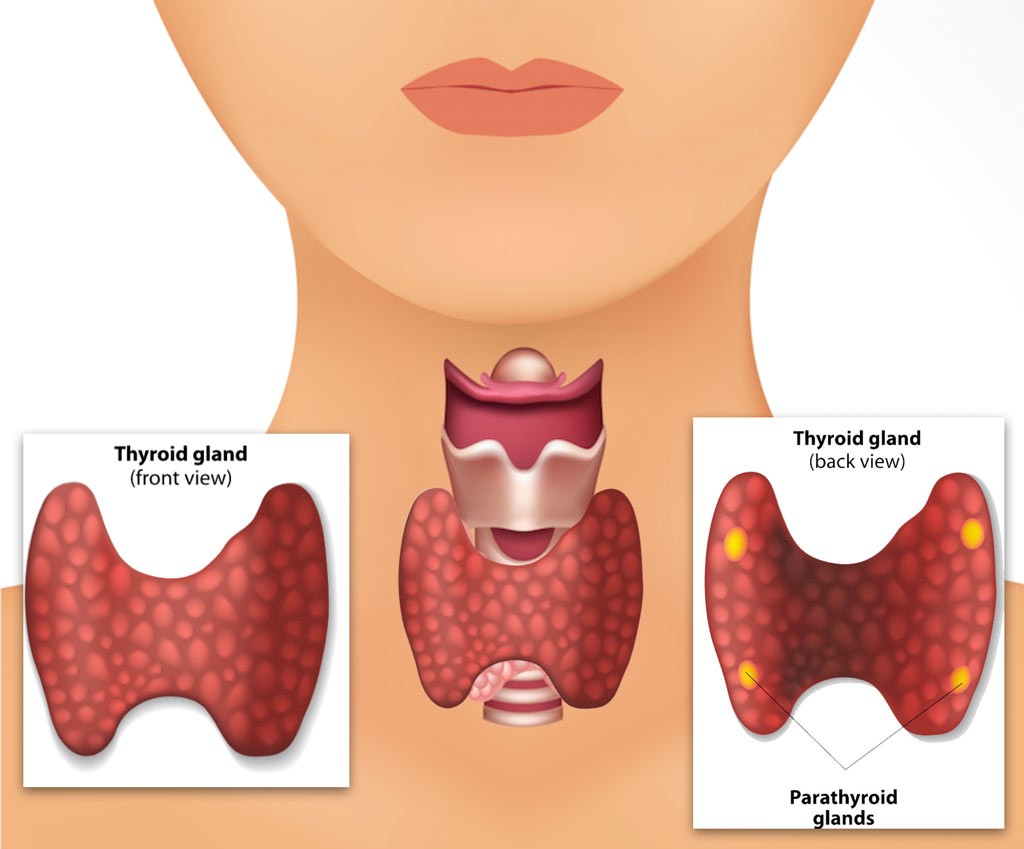Hypoparathyroidism is the weird endocrine disorder I am currently stuck with. It’s the condition in which your parathyroid glands are not adequately functioning. Don’t feel bad if you never heard of this before. Prior to mine going into hiding, I had no idea that I had parathyroids or what they were. They are four little glands, each about the size of a grain of rice, located near (hence “para”) the thyroid. Sometimes after thyroid surgery, the parathyroids get “stunned” and stop working. That’s what has happened to me.
But what do they do? Having explained this many times, I’ve found that two ideas are helpful. First, hypoparathyroidism is more like diabetes than any other disease people tend to be familiar with. Diabetics have trouble regulating their blood sugar and that’s a big deal. People with hypoparathyroidism have trouble regulating their blood calcium and that’s also a big deal.
Calcium in your blood? What?? I thought calcium was in the bones? It is! Here is the other idea that helps explain what hypoparathyroidism is. The calcium in your bones is like your bank account. It’s good to have a healthy bank account! The calcium in your blood is like the money in your wallet. Money in the wallet is also very important! In fact, on a day-to-day basis, arguably more important! The parathyroids are like your ATM card. They help you get calcium out of your bones and into your blood stream, where you can use it. I have plenty of calcium in my bones, but without functioning parathyroids, my body can’t access it.
What does calcium in the blood do? Our muscles use calcium from our blood (serum calcium) every time they move. If serum calcium is too low it can cause muscle cramps, tingling (like pins and needles), tetany (severe cramping) and a host of other bad things like depression and confusion. As one friend who is an endocrinologist put it “Your heart is a muscle, Sarah.” I’ve had plenty of muscle cramps in my legs, but muscle cramps in the heart…..I’d rather not think about that. As another friend put it “That is an especially cruel disorder for a runner.” Yes, it is.
In a normal person, the parathyroids regulate calcium levels in the blood and we don’t even know that’s happening. Because my parathyroids are not currently working, I have to take calcium and activated vitamin D supplements. Too little calcium is bad, but too much calcium is also bad. Too much calcium can lead to kidney stones, cataracts and calcium deposits in the brain or other parts of the body where calcium does not belong. You read that right. The medication that is standard treatment for hypoparathyroidism can cause kidney stones, cataracts and calcification of the brain.
One more piece of bad news. Hypoparathyroidism is like diabetes in that it’s an endocrine disorder having to do with blood levels of calcium (or sugar for diabetes). Most people know that diabetics can check their blood sugar levels through a blood test. That’s where diabetics have a big advantage over hypoparas (people with hypoparathyroidism). Diabetics can check their blood sugar levels at home and immediately. Hypoparas have to go to a lab (which has to be open) and we generally have to wait 24 hours for results. Think about a diabetic having to wait 24 hours to find out if their blood sugar levels are too high or too low. Not fun. So far, I have not had high levels of calcium, but apparently it feels pretty much like low levels of calcium. Too much or too little – both are dangerous and they feel the same. And you have to wait at least 24 hours for results. You can get a faster calcium blood test at the emergency room. Is it any wonder that one survey found that 80% of people with hypoparathyroidism visit the ER or are hospitalized in any given year?
Diabetics have another “advantage” over hypoparas. [Note – I would NOT wish diabetes on anyone!]. There are over 34 million people in the United States with diabetes. There are about 80,000 people in the United States with hypoparathyroidism. If you want to get rich discovering a cure for something, where would you invest your money? If you end up at the ER for diabetes, there’s an extremely good chance that all the medical providers you encounter will have helped diabetics before. If you have hypoparathyroidism, there’s a decent chance that your endocrinologist has never had a patient with this condition before, let alone the folks in the ER. [Note – My endocrinologist has experience with hypoparathyroidism. I got good treatment at the Middlesex ER, but they also recorded my condition as hyPERparathyroidism.] It’s not uncommon for hypoparas to be greeted at the ER with skepticism and possible accusations of drug use. [Our veins get scarred from frequent bloodwork.]
I know a lot of friends and family want to help. The bad news is, the parathyroids will or won’t start working on their own time. The good news is, there are some things everyone can do to help.
- Be kind. More kindness in the world helps everyone. I truly believe that the best way for all of us to heal is to be as kind as possible.
- Kevin and I pray every day for my parathyroids to start working again. This can happen and I do think prayers can help!
- Educate yourself about this crazy disease. Or some other crazy disease if someone close to you is struggling. For hypoparathyroidism, this is a good place to start. https://hypopara.org/
But really – be kind to yourself and to others. That turns out to be the whole entire story.

